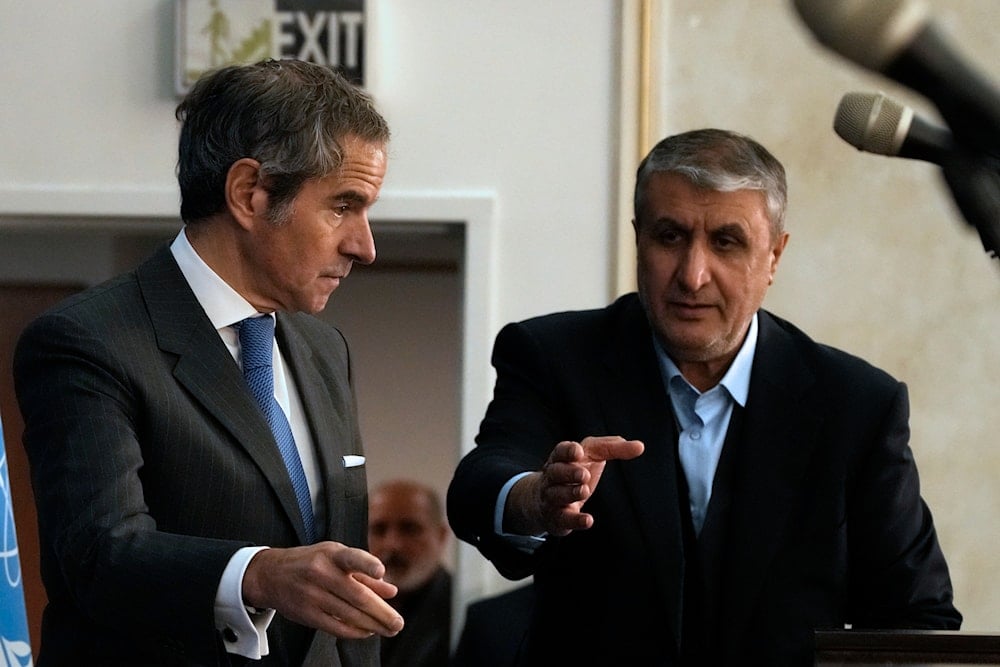Europe stance toughened post Iran-IAEA agreement: AEOI chief
At the IAEA conference, Iran's nuclear chief Mohammad Eslami urged reforms to nuclear safeguards amid Israeli and US pressures on Tehran’s program.
-

International Atomic Energy Agency (IAEA) Director General Rafael Grossi and head of Atomic Energy Organization of Iran Mohammad Eslami gesture as they arrive for a press conference in Tehran, Iran, Thursday, Nov. 14, 2024. (AP)
European countries have taken a "more stiffened" stance since a new agreement was signed between Iran and the IAEA, said Mohammad Eslami, the head of the Iranian Atomic Energy Organization, on Tuesday.
Speaking from Vienna at the conclusion of his visit and participation in the 69th IAEA Conference, Eslami stressed that his presence at the venue was vital to clarify the facts about Iran's situation and to highlight the damage done to international law, the safeguards system, and the agency itself, due to the conditions pursued by the US and "Israel" through their psychological, media, and political campaigns against Tehran.
"This presence and the clarification of the facts helped to prevent a one-sided narrative that attempts to portray Iran as a nation that is unmonitored and deviant in its nuclear program," the head of the AEOI said.
He further emphasized the critical need to create a new mechanism within the international safeguards system. Eslami stated that such a framework must clearly define how nuclear inspections would be carried out if a country’s nuclear facilities were ever targeted in a military attack, noting that any such measures must operate within the jurisdiction of the law passed by the Iranian parliament.
Iran signs agreement with IAEA under new conditions
On September 9, Iran signed a new agreement with the IAEA to resume cooperation under new conditions. Iranian Foreign Minister Abbas Araghchi reaffirmed Tehran's readiness to cooperate with the agency but stressed that such cooperation must safeguard Iran's rights and sovereignty, warning that in the event of military aggression or the re-imposition of sanctions, any agreement would be considered null and void.
Eslami's remarks come as the US and "Israel" continue to pursue an aggressive policy against Iran, with US Secretary of State Marco Rubio vowing to sustain pressure on Iran.
Rubio, speaking on September 15, firmly backed "Israel" and promised that Washington would continue its "maximum pressure" campaign on Iran to stop it from developing nuclear weapons, a claim used by the hostile sides to justify the aggression on Iran despite the latter repeatedly denying any such pursuit in its nuclear program.
He added that Trump would not ease the campaign of coercion, stating, "That's why the president continues with a campaign of maximum pressure, and there will continue to be maximum economic pressure on Iran until they change course."

 3 Min Read
3 Min Read










